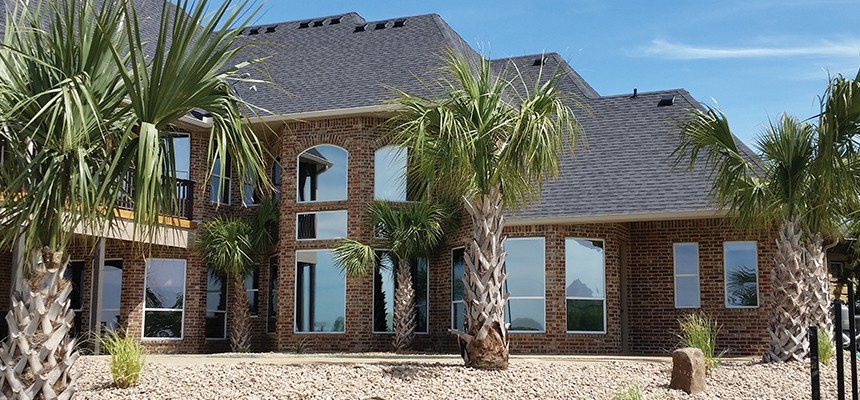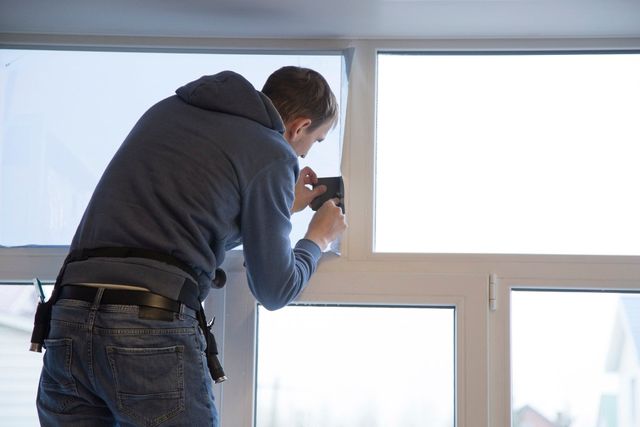Why Residential Window Tint is a Smart Investment for Homeowners
Why Residential Window Tint is a Smart Investment for Homeowners
Blog Article
How Residential Home Window Tinting Improves Your Home's Power Efficiency
Residential home window tinting presents an engaging service for home owners seeking to boost energy performance within their living areas. By using specialized films to home windows, it efficiently reduces warm transfer, thus maintaining interior temperatures and lessening the need for extreme home heating or cooling. This not just curtails energy intake but additionally provides a much more comfy environment by alleviating glow. Nonetheless, understanding the subtleties of just how tinting works and choosing the ideal type for your home can be critical. Oddly, what factors should one consider before making this financial investment?
Comprehending Window Tinting
Comprehending home window tinting is crucial for homeowners seeking to enhance both comfort and power efficiency in their living spaces. Residential Window Tint. Window tinting entails the application of a slim movie to the inside or outside surface area of glass windows. This film can considerably modulate the amount of sunshine and warmth that gets in a home, therefore influencing indoor climate problems
There are various kinds of window tinting movies offered, each with distinct properties. The efficiency of window tinting is usually determined by its Visible Light Transmission (VLT) percentage, which suggests how much light can pass via the film.
Advantages of Power Efficiency
Window tinting not only enhances aesthetics yet also plays a substantial role in boosting energy efficiency within property areas. By lowering warmth transfer through windows, tinted movies create a much more secure indoor environment, which can lead to considerable decreases in energy usage for cooling and heating. This energy performance translates into reduced energy expenses, giving homeowners with considerable lasting savings.

Furthermore, window tinting boosts the comfort of living spaces. By decreasing glow and blocking unsafe UV rays, colored windows develop a more pleasant setting, which can result in improved health for residents. The protection versus UV rays likewise aids protect furniture and floor covering from fading, contributing to the long life of family items.
Just How Tinting Works
Tinting movies operate via a combination of sophisticated materials and technologies made to regulate the quantity of solar power getting in a home. Mainly composed of polyester, these films typically integrate ceramic or metallic bits that soak up and reflect warm. This dual ability permits them to considerably lower the penetration of ultraviolet (UV) rays and infrared radiation while permitting noticeable light to pass through.
The efficiency of home window tinting is measured by its solar warm gain coefficient (SHGC), which shows just how much solar power is transferred via the window. Lower SHGC values are better as they denote higher warmth denial. Additionally, window tints can include a selection of shades, allowing property owners to tailor their visual choices while enhancing energy effectiveness.
Moreover, these movies work as a barrier, avoiding warm loss throughout colder months by reflecting interior warmth back into the living area. This thermal insulation result enhances the air conditioning advantages obtained throughout warmer months, adding to a well balanced interior environment year-round. By taking care of solar power effectively, residential window tinting not only enhances comfort check it out but also plays a vital role in reducing energy intake and decreasing energy costs.
Selecting the Right Tint

There are different kinds of window films offered, consisting of colored, metalized, and ceramic. Ceramic movies provide exceptional warmth control without endangering presence and are highly durable, making Visit Your URL them a prominent choice.
Visible light transmission (VLT) is another essential aspect, as it suggests the quantity of all-natural light that can pass through the colored glass. Homeowners should select a tint with a VLT that matches their illumination choices while still supplying appropriate glow reduction.
Furthermore, analyzing the solar warmth gain coefficient (SHGC) can aid establish just how well a color can obstruct warm from sunshine. A lower SHGC suggests better warmth control, inevitably boosting energy efficiency.
Installment and Upkeep Tips
Correct setup and maintenance are essential parts in optimizing the benefits of domestic window tinting. To attain ideal outcomes, it is a good idea to hire a certified expert for setup. This makes certain that the color is applied properly, avoiding air bubbles, creases, or imbalance that could endanger performance. Specialists likewise make use of specialized methods and tools, which can improve the resilience and performance of the tint.
Complying with installment, upkeep is essential to extend the life of the window film. It is suggested to wait at the very least 30 days prior to cleansing the colored home link windows to permit the glue to cure fully.
Attending to these problems quickly can avoid further damages and preserve energy efficiency. By sticking to these setup and maintenance tips, home owners can guarantee their window tinting proceeds to supply considerable energy financial savings and comfort for years to come.
Conclusion
In conclusion, household window tinting functions as a reliable service for enhancing power effectiveness within homes. By reducing warm transfer and blocking unsafe UV rays, window movies add to lower power consumption and boosted indoor convenience. The choice of ideal tinting materials, along with appropriate installation and upkeep, further maximizes these advantages. Ultimately, home window tinting represents a lasting investment that not only reduces energy expenses yet additionally promotes a comfortable living setting throughout the year.
Home window tinting involves the application of a thin movie to the inside or outside surface of glass windows. By minimizing warmth transfer via windows, tinted films produce an extra secure indoor climate, which can lead to significant reductions in power intake for home heating and air conditioning.The effectiveness of window tinting is determined by its solar warm gain coefficient (SHGC), which suggests just how much solar power is sent via the home window. By managing solar energy effectively, domestic window tinting not only improves comfort however likewise plays a crucial function in minimizing power usage and reducing utility expenses.
By decreasing warm transfer and blocking damaging UV rays, window films contribute to lower power intake and improved indoor comfort.
Report this page